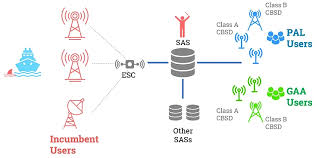VMS (Voice Mail System): A Complete Guide to Its Features and Benefits
telcomatraining.com – In today’s fast-paced digital world, effective communication is crucial for businesses and individuals alike. A Voice Mail System (VMS) is an essential tool that ensures no important message goes unanswered. This guide will explore the key features and benefits of VMS, helping you understand why it is a valuable asset in modern communication.
What is a Voice Mail System (VMS)?
A Voice Mail System (VMS) is an automated technology that allows users to leave and receive voice messages when the recipient is unavailable. This system enables better message management, ensuring that communication remains uninterrupted even when direct contact is not possible.
Key Features of a Voice Mail System
A high-quality VMS comes with several features designed to enhance communication and efficiency. Here are the most notable ones:
1. Automated Message Recording
VMS allows callers to leave messages when the recipient is unavailable. This feature ensures that no important communication is missed.
2. Customizable Greetings
Users can set personalized greetings, providing a professional and customized touch to voicemail interactions.
3. Remote Access
Modern VMS solutions allow users to check their messages remotely via phone, email, or web applications.
4. Message Forwarding
Voicemails can be forwarded to another user, making it easy to share information within a team or organization.
5. Voicemail-to-Email Transcription
Some advanced VMS solutions convert voice messages into text and send them via email, ensuring faster and more convenient access to important information.
6. Call Screening and Blocking
Users can screen incoming calls and block unwanted numbers, improving security and reducing spam messages.
7. Integration with Other Communication Systems
Many VMS platforms integrate with business phone systems, CRM software, and collaboration tools for seamless communication.
Benefits of Using a Voice Mail System
Adopting a Voice Mail System provides several advantages for both individuals and businesses. Here are the top benefits:
1. Enhanced Accessibility
A VMS ensures that important messages are received and stored securely, even if the recipient is unavailable at the moment.
2. Improved Business Communication
Businesses can maintain uninterrupted communication with clients, partners, and employees, ensuring smooth operations.
3. Increased Productivity
Employees can prioritize and respond to messages at their convenience, reducing disruptions during important tasks.
4. Cost Savings
Implementing a VMS reduces the need for additional staff to handle missed calls, lowering operational costs.
5. Better Customer Service
Customers can leave messages and receive follow-ups, enhancing their experience and satisfaction with a company.
6. Data Security and Backup
Messages are stored securely, reducing the risk of losing important information due to human error or technical failures.
How to Choose the Right Voice Mail System
When selecting a VMS, consider the following factors to ensure you get the best solution for your needs:
- Scalability: Ensure the system can grow with your business.
- Integration: Check if it integrates with your current communication tools.
- Security Features: Look for encryption and secure storage options.
- User-Friendly Interface: A simple and intuitive interface ensures ease of use.
- Customer Support: Choose a provider with reliable customer service.
Conclusion
A Voice Mail System (VMS) is a powerful communication tool that ensures seamless message management. With its advanced features and numerous benefits, it is an essential asset for businesses and individuals who want to stay connected efficiently. Whether you are looking to enhance customer service, improve internal communication, or boost productivity, implementing a VMS is a smart investment.
By choosing the right VMS tailored to your needs, you can ensure that no important message is missed, leading to smoother communication and improved operational efficiency.







